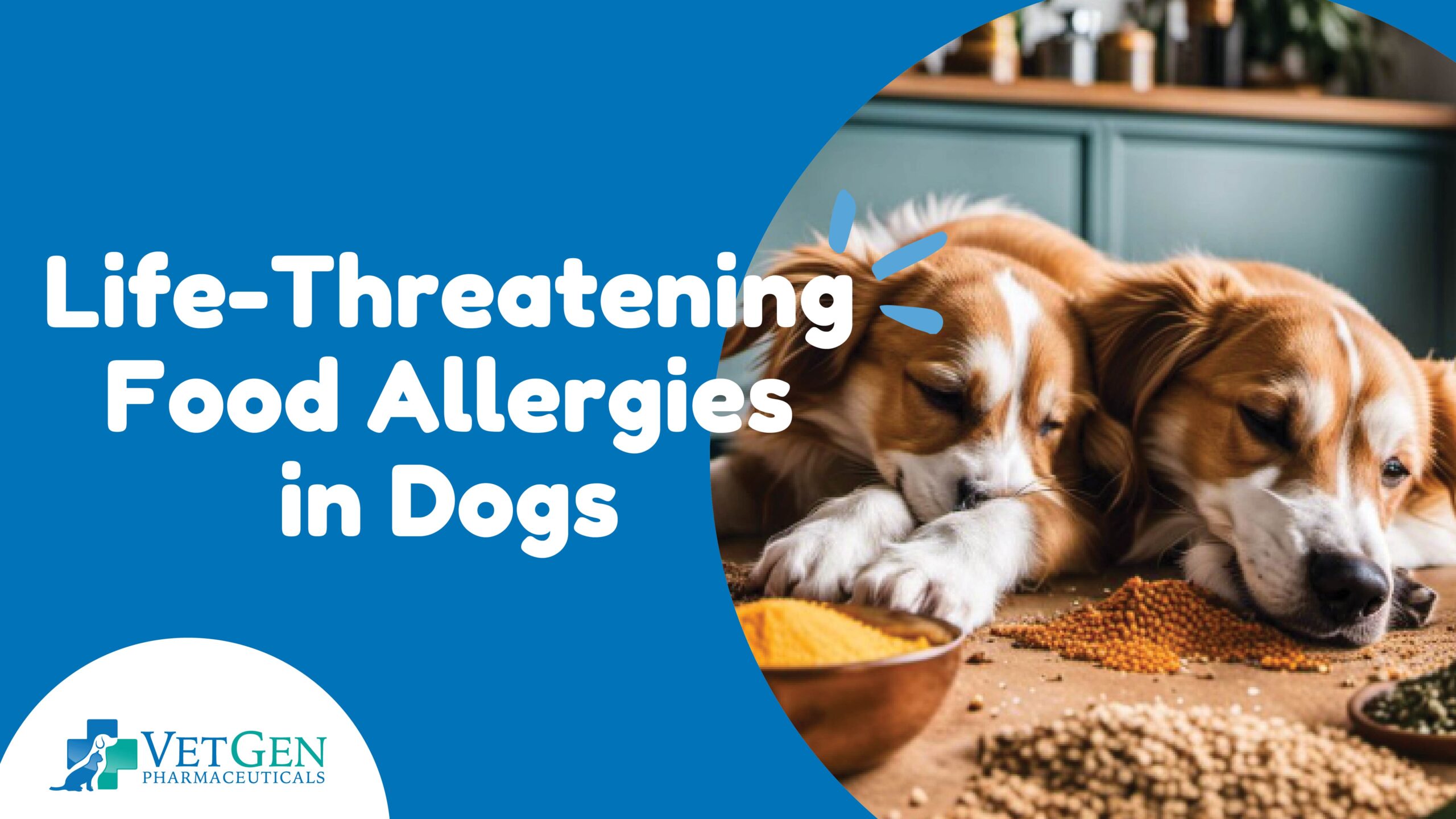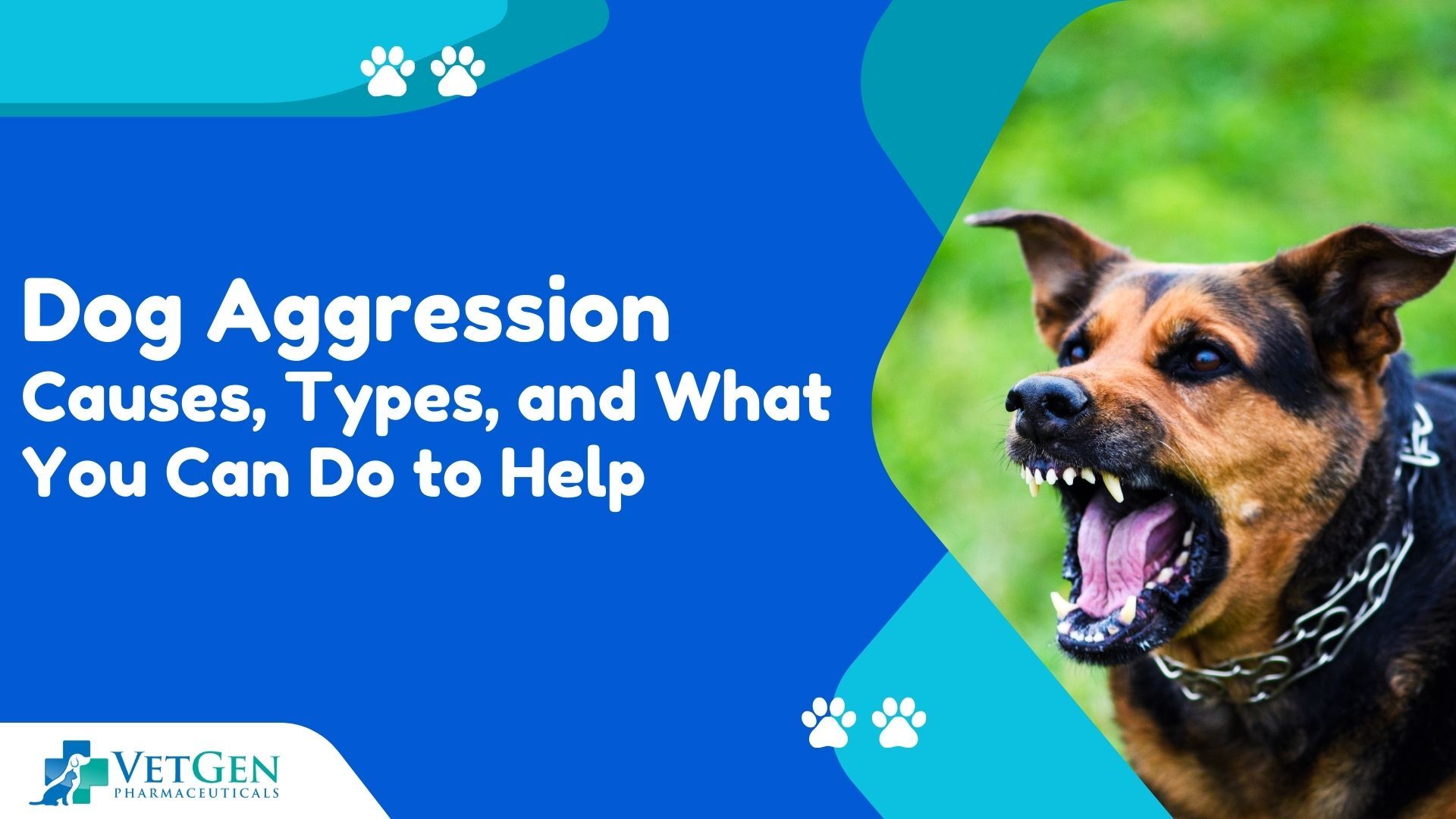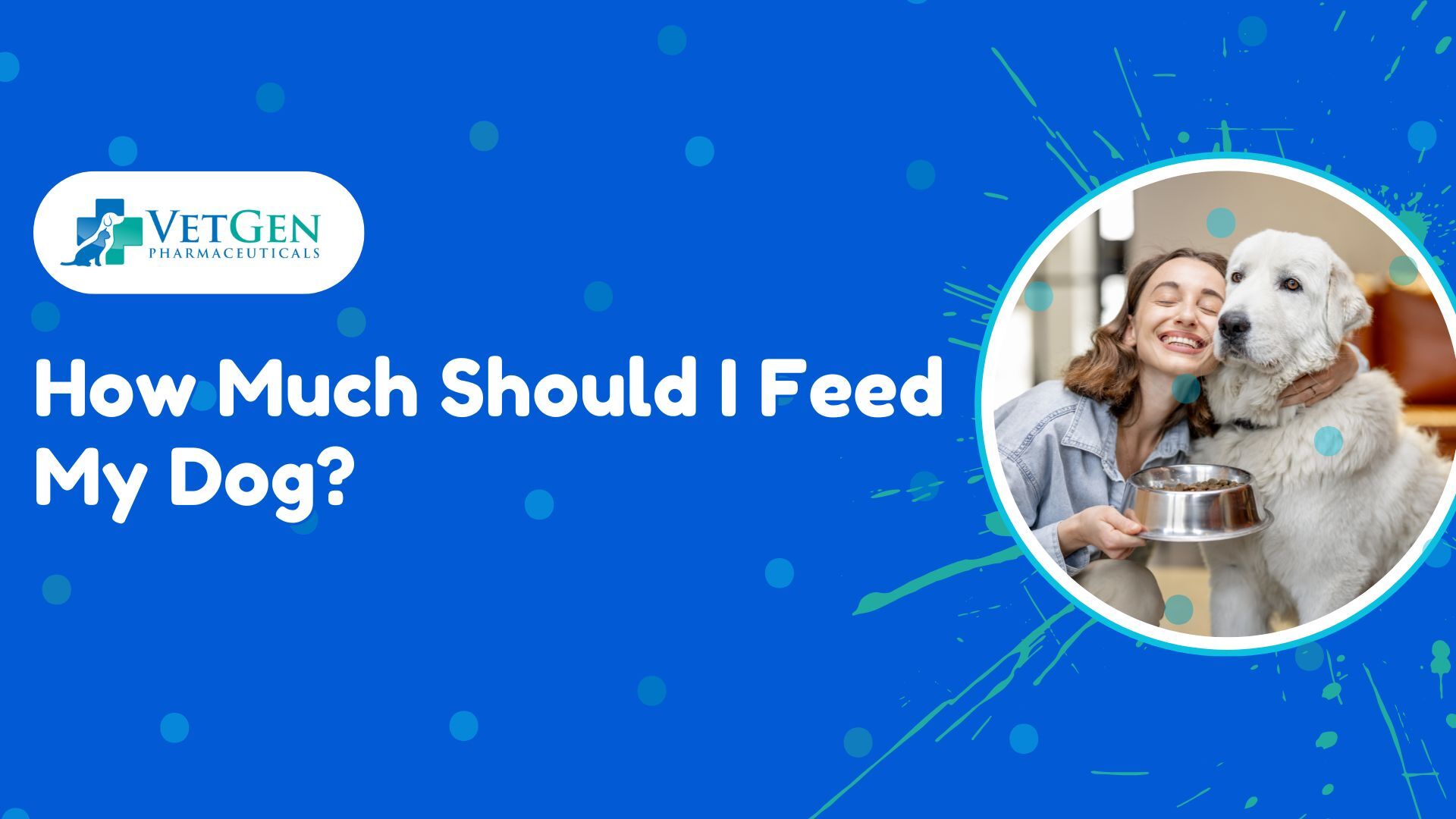Table of Contents
Is your furry pal itchy, sneezing, or showing signs of digestive discomfort? These could be symptoms of food allergies in dogs. Our comprehensive guide will help you understand more about canine food allergies – from identifying common symptoms to suggesting possible dietary alterations that can bring relief.
Key Takeaways
- Food allergies in dogs lead to discomfort, such as itchy skin, hives, ear infections, sneezing, and digestive problems.
- Common triggers: dairy, beef, chicken, soy, wheat gluten, eggs, and lamb/mutton.
- Accurate diagnosis and management are vital for symptom relief; consult a vet for treatment and dietary adjustments.
What are Food Allergies in Dogs?
Food allergies in dogs are adverse reactions to certain foods or ingredients that can cause various symptoms and discomfort for our furry friends.
Definition of Food Allergies in Dogs
Food allergies in dogs happen when their immune system mistakenly identifies a specific food ingredient as harmful. This mistaken identification then triggers an allergic reaction, which can cause various symptoms such as skin itching, sneezing, hot spots, skin rashes, vomiting, diarrhea and ear infections.
Types of Food Allergies
Food allergies in dogs are typically triggered by the proteins found in their diet. Beef is often the primary culprit, causing allergic reactions more frequently than other types of meat.
The proteins in beef can activate an immune response, leading to symptoms such as itchy skin, digestive issues, and even hair loss.
Other common allergens include wheat gluten, eggs, chicken, soy, lamb/mutton and fish. These dietary components may not agree with every dog’s system. For some pets showing signs of sensitivities or intolerances, alternative proteins like rabbit or wild game meats suit them better when forming part of a carefully balanced diet.
Signs and Symptoms of Food Allergies in Dogs
Food allergies in dogs can manifest through various signs and symptoms, including itchy skin, ear infections, hives, digestive issues, sneezing, and hair loss.
Itchy Skin
Dogs with food allergies often exhibit itchy skin as a primary symptom. The discomfort caused by this allergic reaction leads to behaviors like excessive scratching, paw licking and rubbing against furniture.
Dermatitis, characterized by inflamed and reddened patches of skin, frequently accompanies itchiness in such cases.
Allergens from certain foods trigger the immune system of these affected dogs to react abnormally. Substances like beef are common culprits that can cause severe bouts of pruritus or intense itching.
Ear Infections/Skin Infections
Ear infections and skin infections are common symptoms of food allergies in dogs. When dogs have a food allergy, their immune system reacts to certain proteins found in their food, leading to allergic reactions.
These reactions manifest through skin-related issues, such as dermatitis, pruritus (itching), redness, swelling, and inflammation. Dogs may develop hot spots, which are areas of irritated and inflamed skin that can become infected if not treated promptly.
Food allergies can be particularly troublesome for some breeds that are prone to skin problems. Certain dog breeds like Bulldogs, Cocker Spaniels, Westies (West Highland White Terriers), and Yorkies (Yorkshire Terriers) are more likely to experience ear infections and other skin-related issues due to their genetic predisposition.
Hives
Hives are a common sign of food allergies in dogs. If your furry friend develops hives, you may notice itchy skin and red bumps on their body. These allergic reactions can also cause other symptoms, such as sneezing, hot spots on the skin, vomiting, diarrhea, and ear infections.
When hives occur due to food allergies in dogs, it means that their immune system is reacting negatively to certain proteins in their diet. The body releases histamines in response to these allergens, causing the development of hives and other allergy symptoms.
With proper diagnosis and management techniques like dietary changes and avoiding allergens, you can help alleviate your dog’s discomfort caused by hives while promoting better overall health.

Digestive Issues
Food allergies in dogs can lead to various digestive issues, causing discomfort and distress. These issues can include vomiting and diarrhea, which can result from the body’s adverse reaction to certain food allergens.
It is important for dog owners to be aware of these symptoms as they could indicate a potential food allergy or intolerance. Additionally, it is worth noting that some dogs may experience similar symptoms due to food intolerances rather than true allergies.
Although pure carbohydrates are usually safe for dogs and less likely to cause allergies, gelatin found in supplement oils has the potential to trigger allergic reactions in some dogs.
Sneezing
Sneezing is a common sign of food allergies in dogs. When a dog sneezes, it could be due to their immune system’s response to a specific food ingredient. Sneezing can also indicate food intolerances in dogs.
Notably, sneezing associated with food allergies may require an elimination diet to identify the specific allergens triggering this reaction. Additionally, it’s essential for dog owners to know that sneezing can be a recurring symptom even after treatment with antibiotics or antifungal medications.
Hair Loss
Hair loss is a common sign of food allergies in dogs. It can occur when dogs have difficulty digesting certain foods or develop sensitivities to specific proteins. For example, some dogs may be intolerant to dairy products, leading to hair loss and other symptoms like digestive issues.
Chicken and lamb are also known allergens for dogs and can contribute to hair loss. Additionally, soy consumption has been linked to various dog health problems, including hair loss.

Common Food Allergy Triggers in Dogs
Common food allergy triggers in dogs include dairy, beef, chicken, soy, wheat gluten, eggs, and lamb.
Dairy
Dairy is a common food allergen for dogs. Some dogs have difficulty digesting lactose, which is found in dairy products like milk and cheese. This can lead to gastrointestinal symptoms such as vomiting and diarrhea.
In addition to digestive issues, dairy allergies in dogs can cause other symptoms like itchy skin, sneezing, hot spots, skin rashes, and ear infections.
It’s important to note that dairy allergies can be inherited from the dog’s parents. If your dog shows any signs of a dairy allergy or intolerance, it’s best to consult with your veterinarian for an accurate diagnosis.
Beef
Beef is the most common food allergen for dogs. Just like humans, dogs can have allergies, and meat, including beef, is a known trigger. If your dog has a beef allergy, they may experience symptoms such as itchy skin, hot spots, and vomiting.
These allergic reactions are similar to those caused by other common food allergens like dairy, wheat, and eggs. It’s important to be aware that lamb, often used as an alternative to beef in dog food formulas, can also cause dog allergies.
Chicken
Chicken is a common food allergen for dogs. Even in premium dog foods, chicken can cause allergies in our furry friends. Dogs with food allergies may experience skin irritations such as itchy skin, hot spots, and rashes.
They may also have gastrointestinal issues like vomiting and diarrhea. Additionally, chicken allergies can lead to sneezing and ear infections in dogs. Despite being used as an alternative to beef in some dog foods, chicken can still trigger allergic reactions in dogs.
Soy
Soy is a common food allergen for dogs, and it can cause various health issues. Even premium dog foods may contain soy, which can trigger allergies in sensitive dogs. It is important to note that soy is often used as an alternative protein source to chicken and beef, but some dogs can still develop allergies to soy.
It’s worth mentioning that when dealing with a soy allergy in your dog, avoiding products that contain soy is crucial. Reading labels carefully and choosing dog foods without any form of soy can help prevent allergic reactions.
Wheat gluten
Wheat gluten is a common food allergen for dogs, causing allergic reactions in some furry friends. While meat allergies are more prevalent among dogs, wheat gluten can still trigger symptoms in sensitive pups.
Remember to read labels carefully when choosing dog food and treats for your pup. Opting for grain-free options or those without wheat gluten can help reduce the risk of triggering an allergic reaction in your furry friend.
Eggs
Eggs can trigger food allergies in dogs, making them one of the most common allergens for our furry friends. Specifically, proteins present in the egg yolk can cause allergic reactions in dogs.
If your dog is allergic to eggs, they may experience symptoms such as itchy skin, hot spots, and ear infections. It’s important to be aware of these signs and seek veterinary advice if you suspect an egg allergy in your dog.
Lamb
Lamb is a common food allergen for dogs, even though it is often considered a premium ingredient in dog food. It is frequently used as an alternative to chicken and beef in many commercial dog foods.
Dogs can develop allergies to lamb proteins, which are one of the most common triggers for food allergies in dogs, with beef being the most prevalent. If your dog is allergic to lamb, they may experience symptoms such as itchy skin, sneezing, hot spots, rashes on the skin, vomiting, diarrhea, and ear infections.
Diagnosis of Food Allergies in Dogs
To diagnose food allergies in dogs, a veterinary consultation is necessary to discuss the dog’s symptoms and medical history.
Veterinary Consultation
Veterinary consultation is crucial when it comes to diagnosing food allergies in dogs. If you suspect that your furry friend has a food allergy, it’s important to visit a veterinarian who can help determine the specific allergens causing the problem.
Your veterinarian may recommend allergy testing or an elimination diet to identify the offending ingredients during a veterinary consultation for food allergies. They will also guide dietary changes and help you navigate the various treatment options available.

Elimination Diet
An elimination diet is a highly effective method for determining your dog’s food allergies. This process involves removing potential allergenic ingredients from their diet and then reintroducing them individually to observe any allergic reactions.
By carefully monitoring your dog’s symptoms during this trial period, you can identify the specific foods that trigger their allergies. It’s important to note that even premium dog foods may contain ingredients that can cause allergic reactions in dogs, so an elimination diet is often necessary to pinpoint the culprits.
Allergy Testing
Allergy testing is a crucial step in diagnosing food allergies in dogs. It can help identify the specific allergen causing your dog’s symptoms, allowing for targeted treatment and management.
Allergy tests typically involve blood or skin tests to determine which substances trigger an immune response in your dog. These tests can detect common food allergens such as dairy, beef, chicken, soy, wheat gluten, eggs, and lamb.
Treatment of Food Allergies in Dogs
Treatment of food allergies in dogs typically involves making dietary changes, such as switching to hypoallergenic dog food and avoiding known allergens. Medications may also be prescribed to alleviate symptoms and manage allergic reactions.
Dietary Changes
Dietary changes play a crucial role in treating food allergies in dogs. When a dog is diagnosed with a food allergy, it is important to eliminate the allergenic ingredients from their diet.
This means carefully reading labels and choosing dog foods that do not contain the specific allergen. For example, if your dog has a beef allergy, you must avoid feeding them any products that contain beef or its byproducts.
Avoidance of Allergens
To effectively treat food allergies in dogs, it is crucial to focus on avoiding allergens. This means identifying the specific ingredients that trigger an allergic reaction in your furry friend and eliminating them from their diet completely.
Dogs can develop allergies to various ingredients, including beef, dairy, wheat, egg, chicken, lamb/mutton, soy, pork, rabbit, and fish. Even premium dog foods may contain these common allergens.
Medications
Benadryl is a medication that can provide relief for dogs with food allergies. It helps minimize itching, one of the common symptoms of food allergies in dogs. If your furry friend develops secondary infections due to their food allergies, antibiotics like Cephalexin and antifungals like ketoconazole may be prescribed by a veterinarian.
Hydrolyzed proteins can also play an important role in treating food allergies in dogs. Using dog foods containing hydrolyzed proteins can eliminate potential allergens and help reduce the risk of allergic reactions.
Conclusion
In conclusion, dog food allergies can be frustrating and uncomfortable for both pets and their owners. It’s important to recognize the signs and symptoms of dog food allergies, such as itchy skin, digestive issues, and hives.
At VetGen Pharmaceuticals, we are dedicated and focused on enhancing the quality of your dog’s life to ensure your dog maintains an active lifestyle so you can enjoy each other’s company for many years to come! To this end, we offer the best dog supplements for dry skin and natural joint supplements for dogs. Each product offered by VetGen Pharmaceuticals is made from the best and safest ingredients.
FAQs
1. What are the common signs of food allergies in dogs?
Common signs of dog food allergy include itching or scratching, gastrointestinal issues (such as diarrhea or vomiting), chronic ear infections, and skin inflammation or redness.
2. How can I identify if my dog has a food allergy?
To identify if your dog has a food allergy, you can conduct an elimination diet where you gradually remove common allergens from their diet and reintroduce them one at a time to see if
any symptoms occur. Additionally, you can consult with a veterinarian who may recommend further testing.
3. What are some common food allergens for dogs?
Common food allergens for dogs include beef, chicken, dairy products, wheat, soy, corn, and eggs. However, every dog is unique and might have different sensitivities.
4. How can I manage my dog’s food allergies?
Managing your dog’s food allergies involves identifying and avoiding the specific allergens that trigger their symptoms. This may require switching to hypoallergenic or limited-ingredient diets recommended by veterinarians and carefully monitoring the ingredients in their treats and supplements to prevent accidental exposure to allergens.








